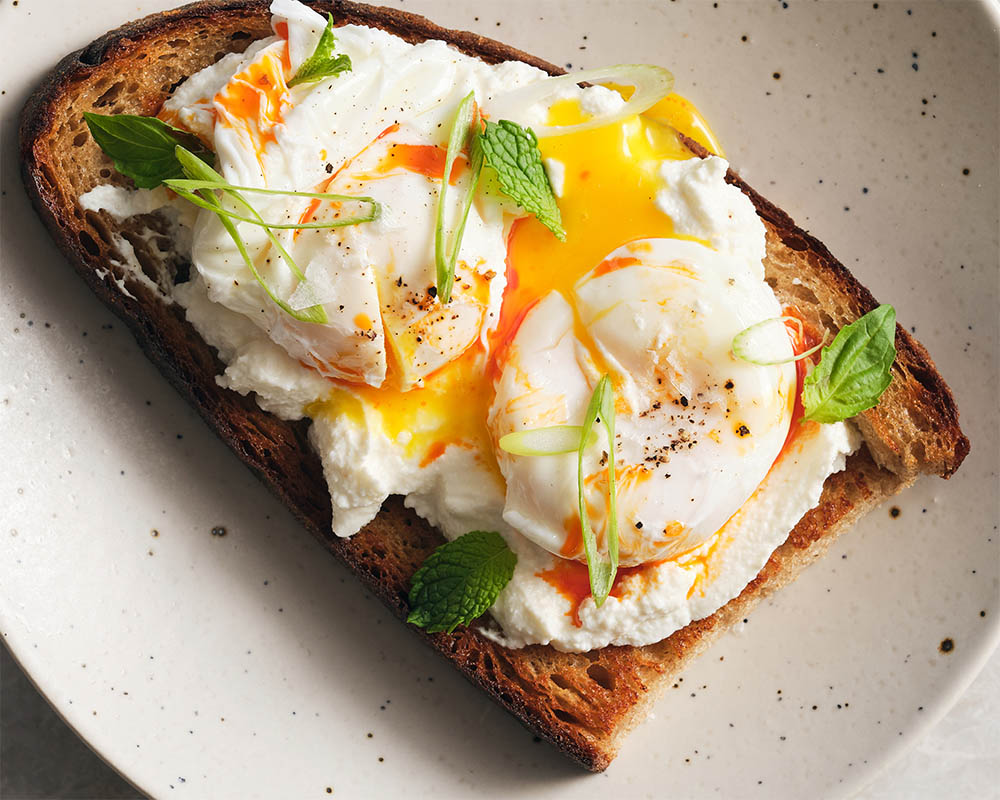
From the simplicity of perfectly cooked hard, medium, and soft-boiled eggs to the delicate artistry of a steamed egg custard, the world of egg cooking offers endless culinary possibilities. Join us on a flavorful journey through these techniques, guiding you to create egg dishes with ideal textures and taste.
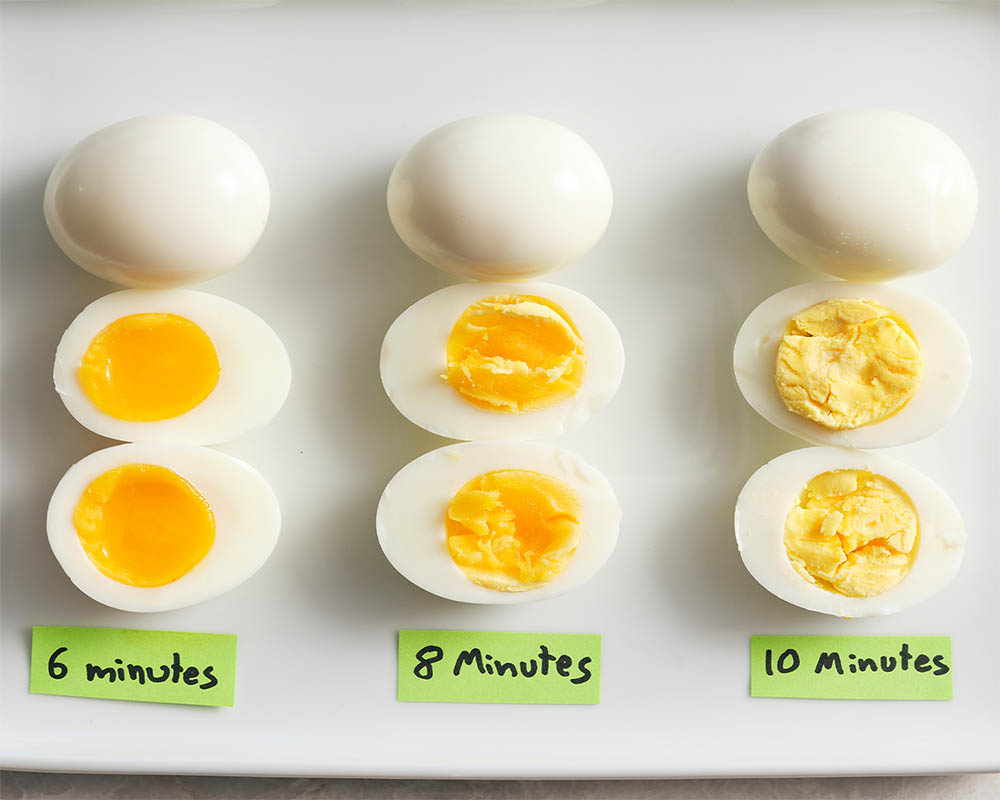
Hard/Medium/Soft-Boiled Eggs
Easy to cook and versatile in recipes. Start with cold eggs right from the fridge. Bring a pot of water to a simmer. Lower the eggs in with a slotted spoon, being careful not to crack them against the bottom of the pot. Simmer until cooked to your liking.
Soft-Boiled Egg: 5 to 6 minutes; runny yolk, medium-set white
Medium-Boiled Egg: 7 to 8 minutes; jammy, soft yolk, firm white
Hard-Boiled Egg: 10 to 12 minutes; fully cooked, crumbly yolk, firm white
Remove from hot water with slotted spoon and carefully transfer to an ice bath. Shock for 2 minutes, then peel immediately. The cold water will shrink the membrane beneath the shell, making it easy to peel. Once peeled, you can serve immediately or cool completely for use in your next batch of egg salad or deviled eggs.
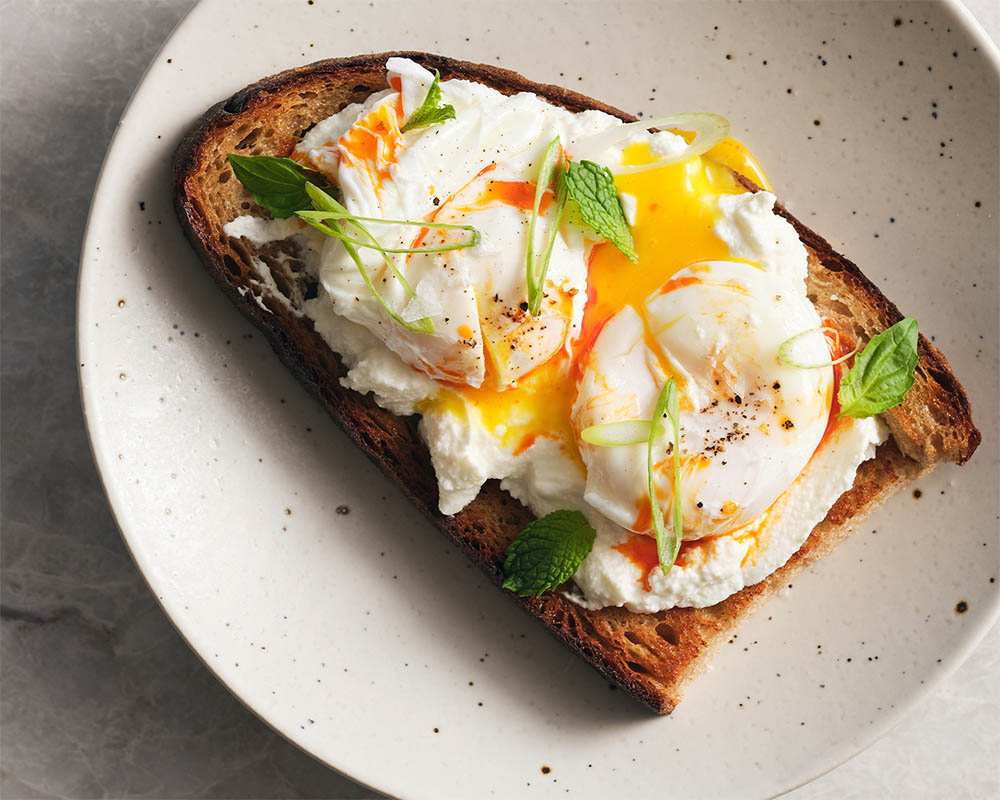
Poached Eggs
Poached eggs are simmered out of the shell, directly in water. It’s the preparation used to make eggs Benedict smothered in hollandaise sauce. It takes some practice to get them right, but the perfectly cooked whites and runny-to-set yolks are worth the effort. To make them, bring a pot of boiling water to simmer and season with salt. Many recipes recommend a splash of white vinegar in the water, but I leave it out. I haven’t found it to have any effect on how the egg cooks, and I don’t like the rubbery texture and vinegary flavor it imparts. Crack an egg into a small dish. Stir the hot water in a circular motion to get it flowing, then lower the egg in, and slip it into the water. The motion of the water will prevent the egg from sticking to the bottom of the pot. Cook 2 to 3 minutes for a soft yolk or 5 to 6 minutes for a firm yolk. Remove with a slotted spoon, dot the spoon on a clean dish towel to drain the water, and serve immediately.
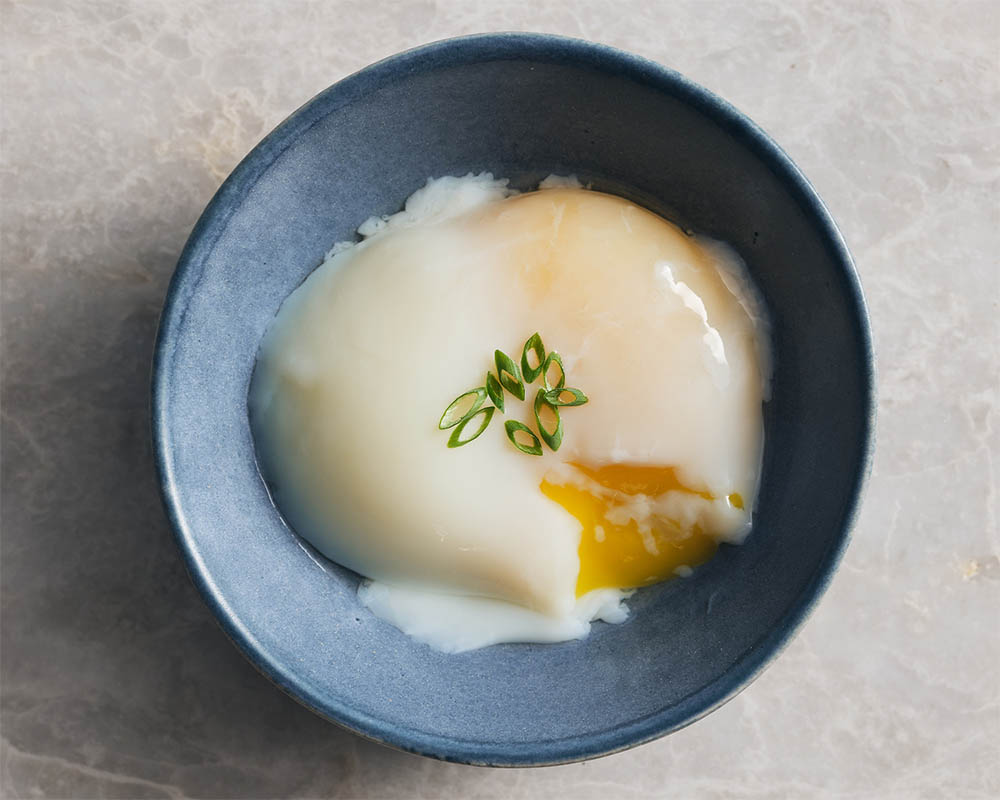
Sous Vide Eggs
If you have a sous vide machine or an immersion circulator, this is a simple method that yields a perfectly cooked soft-poached egg which you can crack directly out of the shell. The white will be cooked through, but will be soft enough to stir effortlessly into a bowl of rice while the yolk will be creamy and runny. Set your immersion circulator to 147°F. Gently lower raw whole eggs, in shell, directly into the water, being careful not to let the eggs crack as they fall to the bottom of the pot. Let the circulator do its thing for 45 minutes. Then, simply crack the eggs and pour them out, perfectly poached. The result will be soft, but fully cooked, whites and runny yolks.
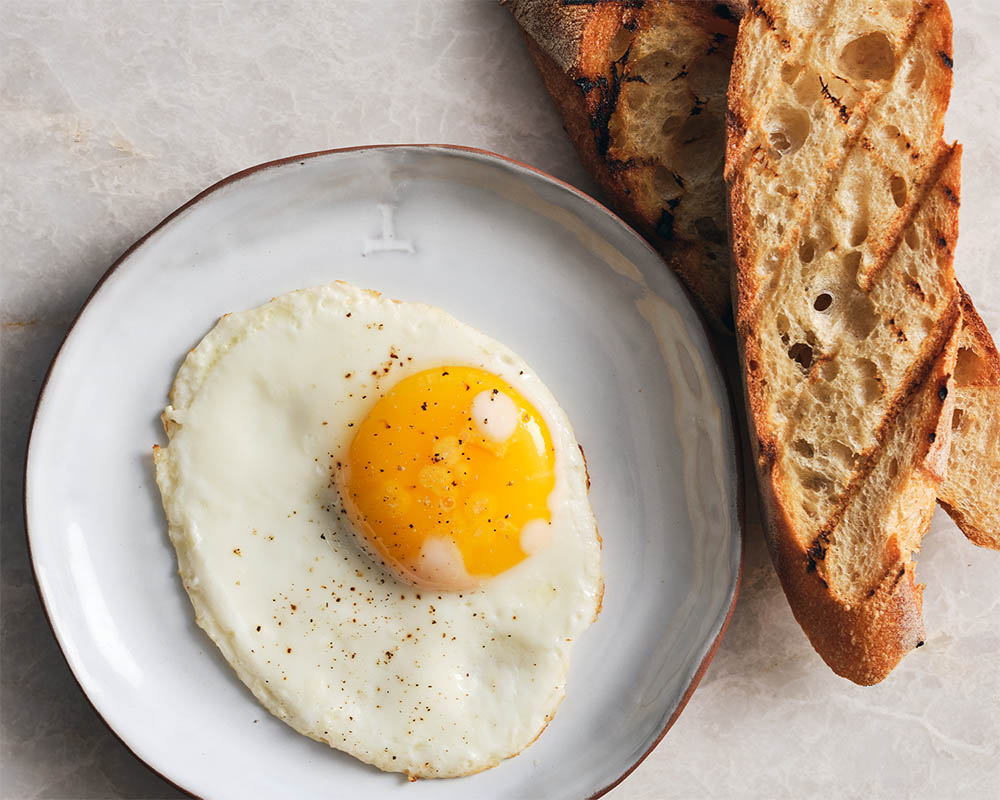
Fried Eggs
Sunny-side-up or over-easy, fried eggs are a breakfast classic—and for good reason! They cook up quickly and are a great source of protein and healthy fats. Simply heat a nonstick skillet, add a touch of oil or butter, then crack in the egg. Cook to your desired doneness and serve.
Sunny-Side-Up: Cook the egg on low heat until the white has set but the yolk is still runny and visible on the top.
Over-Easy: Cook the egg on low heat until the white is nearly set. Flip the egg over in the pan and cook a few more seconds.
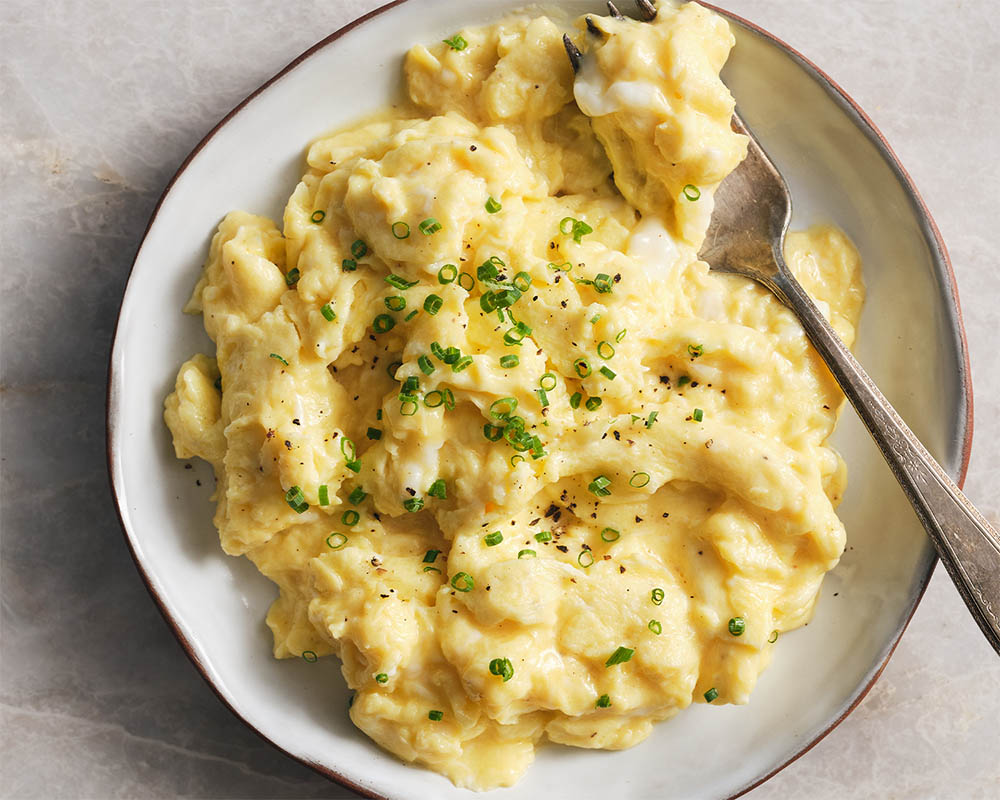
Scrambled Eggs
Scrambled eggs are tasty and easy to make. They’re perfect for breakfast sandwiches, burritos, or just on their own alongside buttered toast. Whether you prefer them soft and creamy or light and fluffy, you can tailor our technique for the perfect scramble.
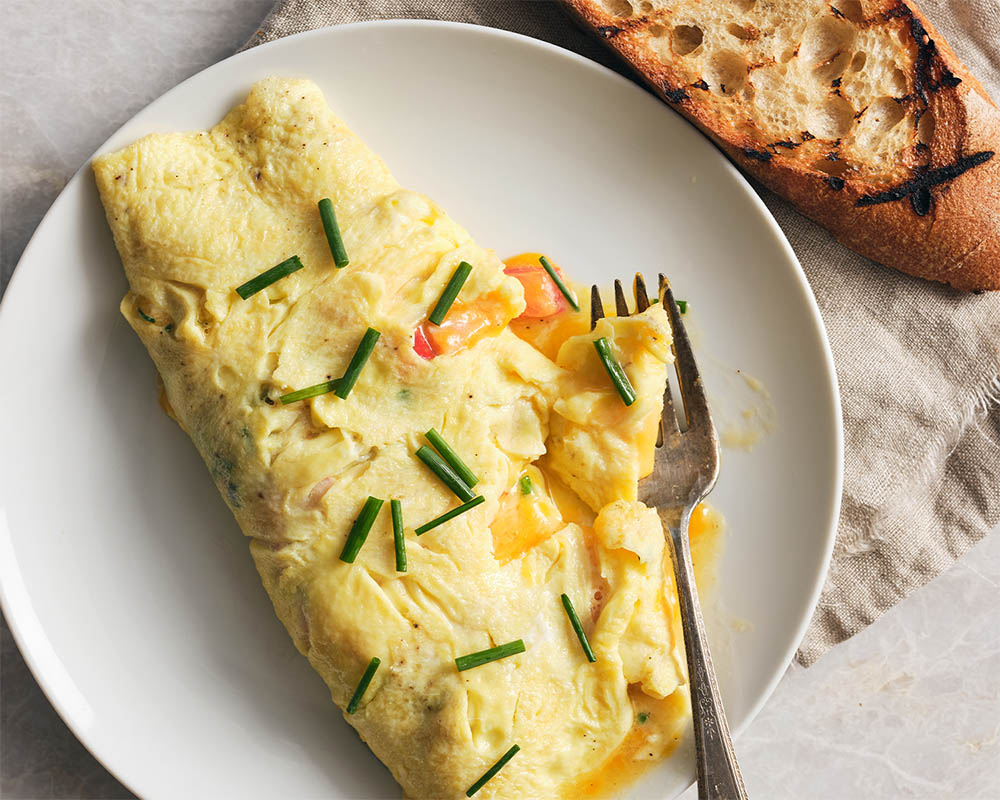
Egg Omelet
An omelet is made from scrambled eggs, stuffed with ingredients such as veggies, meat, and/or cheese. It’s a brunch classic that can be customized any way you like!
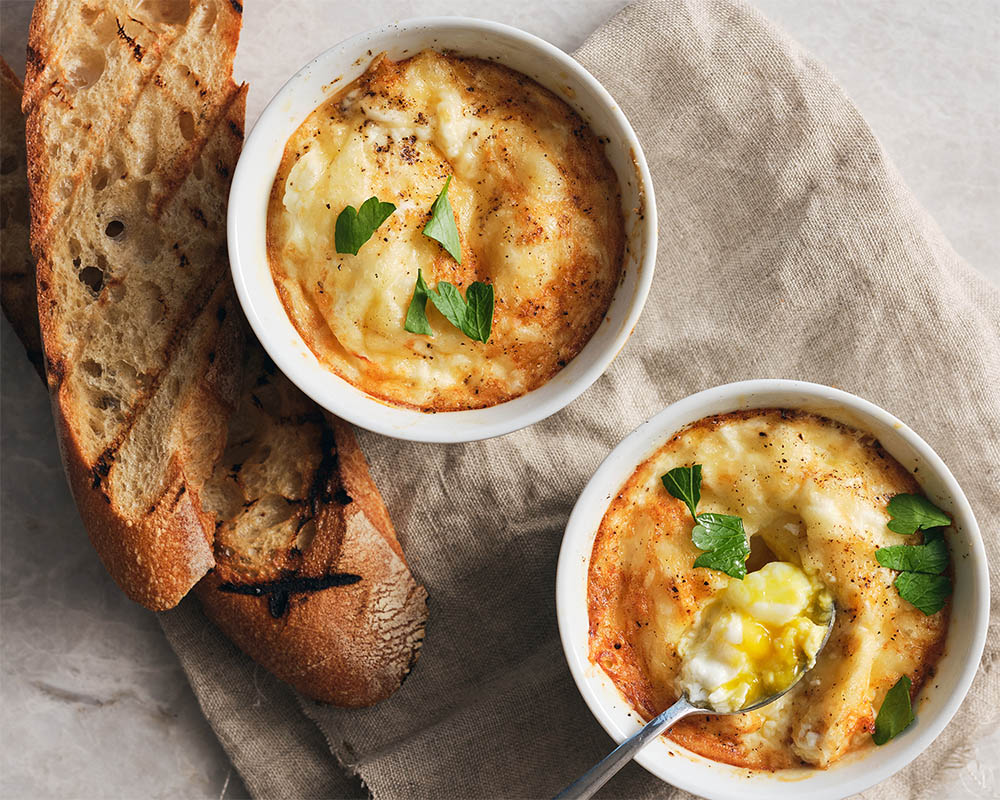
Shirred Eggs
Take your eggs to the next level with delicious shirred eggs. This method is named for the “shirrer” or ramekin in which the egg is baked. Simply bake the egg with a splash of cream and top with melty cheese—perfect for dunking toast points! This is a great way to make eggs in your air fryer for a perfect golden top and silky yolk.
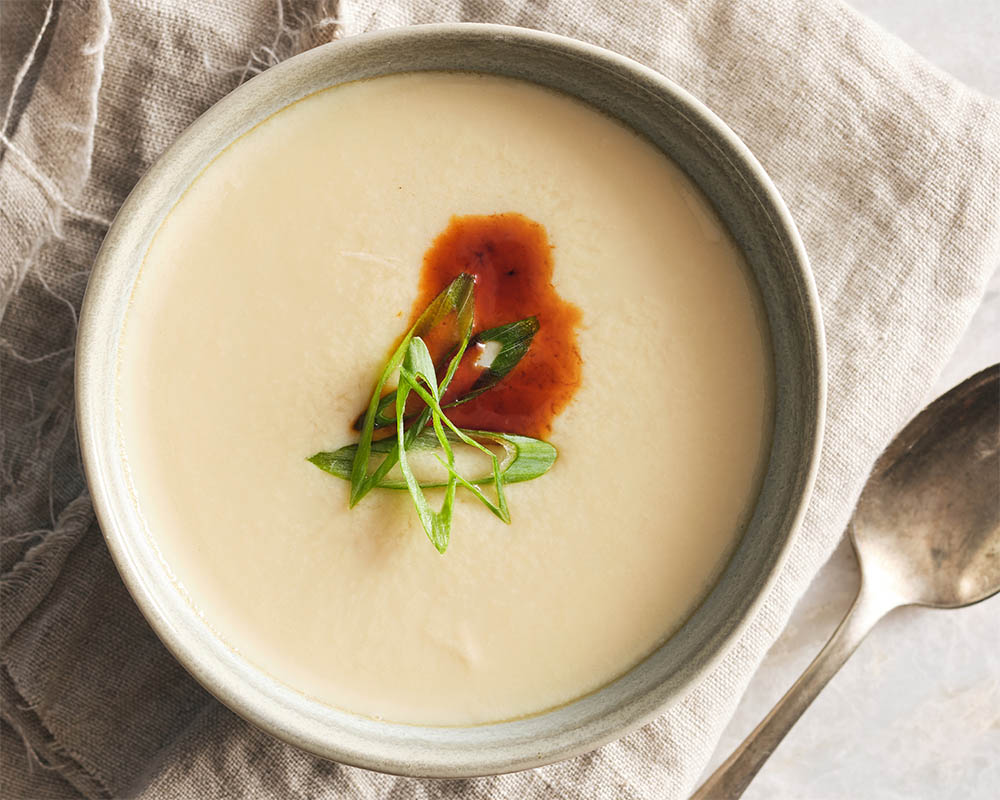
Chawanmushi
Directly translated as “tea cup eggs,” all you need for this light, savory, steamed egg custard are eggs, soy sauce, and broth. In Japan, it’s traditionally made with dashi broth, but any flavorful broth will work. It is often filled with other tasty ingredients such as mushrooms, edamame, and fish. Simply whisk together eggs and broth, cover, and gently steam until set. Top with green onion and a drizzle of soy sauce, and you’ve got yourself a delicious breakfast! It can be eaten hot or cold.
